Patagonia Terravia Pack 36L Review
The Patagonia Terravia Pack 36L is comfy and composed thanks to its metal frame and well-padded harness system, though its shape and structure are a bit lumpy.
Our Verdict
Save time. Get access to brief summaries of our reviews so you can browse and make decisions more efficiently.
Pros
- Metal frame keeps it structured and sitting firmly against your back
- It's lightweight, so it doesn't feel like you're carrying more bag than gear
- The pack can accommodate lengthy gear or tall stacks since it's a rolltop
Cons
- Hip belt is non-removable and is sometimes overkill
- We find it tedious to roll and unroll the opening each time you need to take something out
- The pack looks lumpy even with the compression straps to keep the load cinched down
Technical Details
-
Capacity
36l
-
Weight (lb)
2.35 lb (1.1 kg)
-
Dimensions
25.5 in x 12 in x 9 in (64.8 x 30.5 x 22.9 cm)
Medium | Small: 24" x 12" x 9" | Large: 27" x 12" x 9"
-
Notable Materials
Ripstop Nylon, Polyester, Spandex, Polyurethane (PU), DWR Coating, Meets bluesign® Criteria
-
Manufacturing Country
Vietnam
-
Warranty Information
Full Review
Comfort is a high point for Patagonia’s Terravia Pack 36L. Despite the bag’s lumpy shape and rugged outdoorsy vibes, its harness system makes it feel like you’re carrying something meant for the city. Structured, composed, and easy on the shoulders, its metal frame, thick padding, and supportive hip belt all play a key role in taming the bag’s 36-liter capacity and penchant for load.
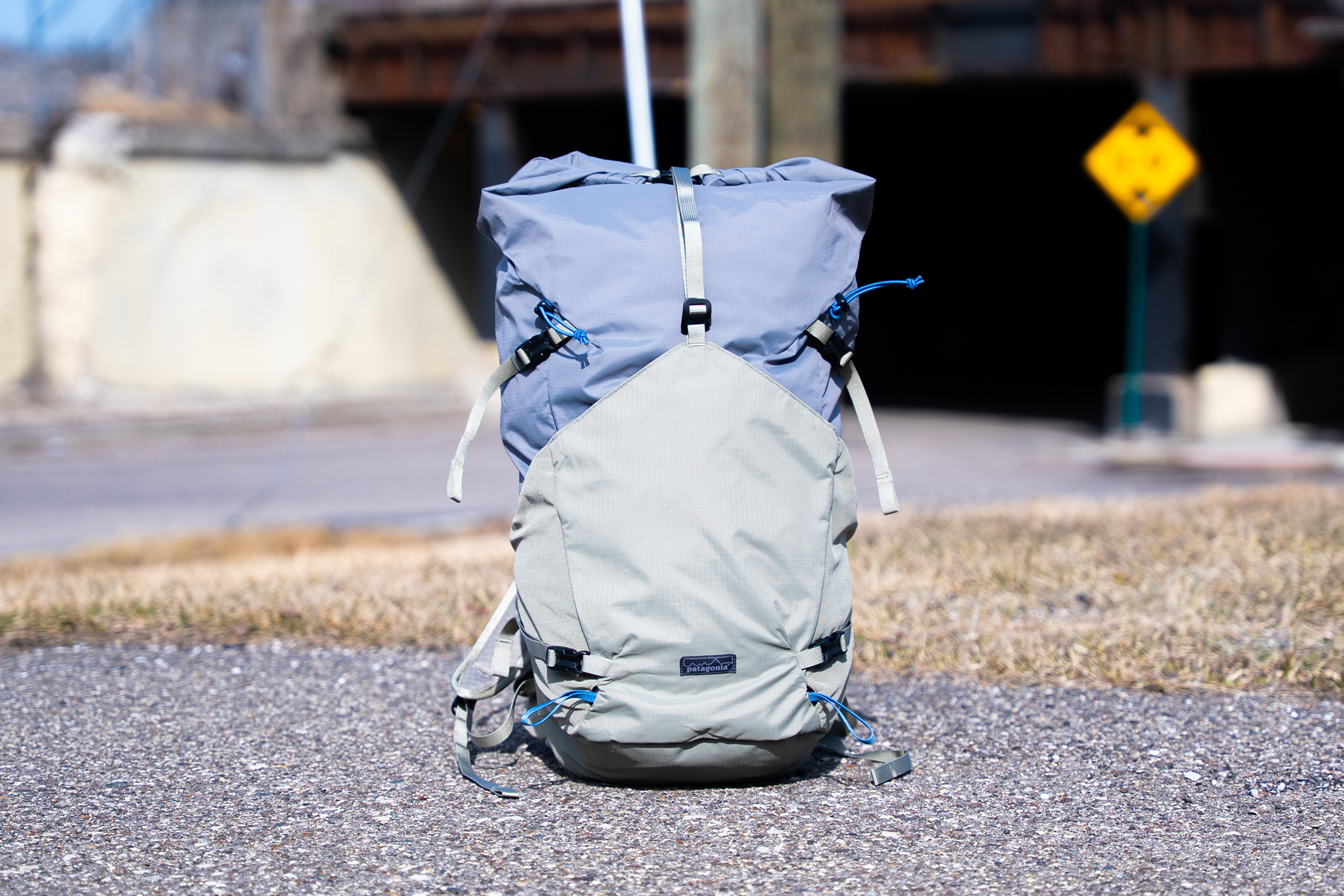
Still, it’s a rolltop backpack, and that comes with its own set of caveats if you’re looking for a daily bag. Accessibility is one of them, as having to roll and unroll the bag’s opening can get tedious, especially if you’re used to a zippered backpack. Is it a deal-breaker? Or does the Terravia have more pros than cons to win you over? Let’s find out.
External Components
Patagonia is trying to balance two things with the Terravia’s exterior: lightness and weather resistance. The main body is made of 140-denier 100% recycled ripstop nylon, while the bottom and face are 210-denier 100% recycled polyester plain weave. You can tell by the denier count where Patagonia’s expecting abrasions, though both fabrics have a PU coating to brush off splashes relatively easily. Still, these are low denier counts for an outdoor-type backpack, hence the bag’s lighter weight for its size.
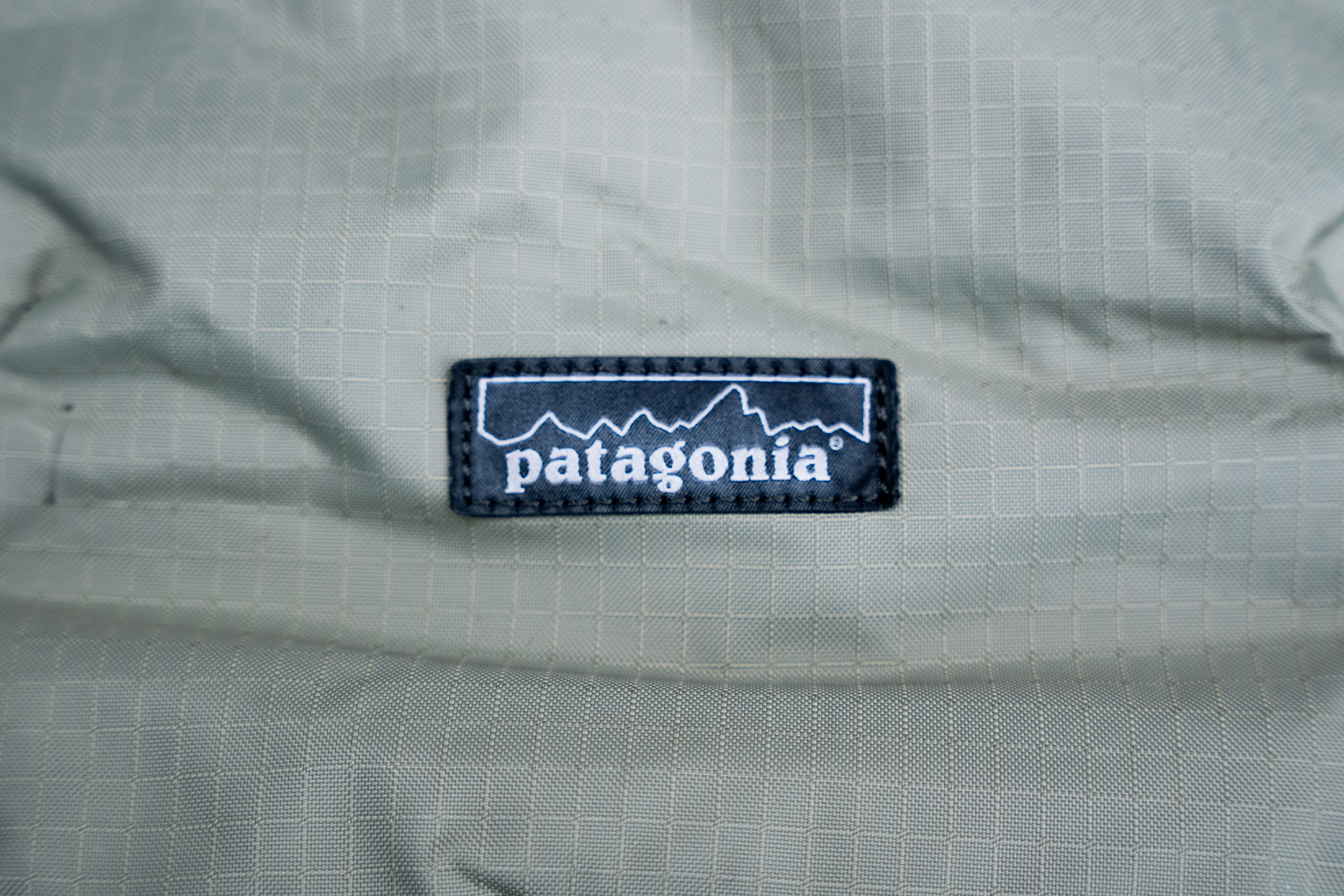
Looks-wise, the two-tone design does a decent job of distracting us from the lumpy and decidedly irregular shape of the bag. The countless straps, buckles, and paracord pulls certainly make this bag’s outdoorsy nature undeniable, but we appreciate the colorway’s overall casual tone—one that shouldn’t draw too much attention if you haul it into a cafe.
If nothing else, the four compression straps fulfill their primary purpose of locking down the bag’s weight. We relied on these a lot since the bag’s relatively loose structure is susceptible to bloating. We found less use for the hiking pole loops, which are a helpful blue color, since it’s not every day that we go on such hardcore adventures. That said, they come in clutch as extra attachment points for other accessories, such as travel tripods or yoga mats.
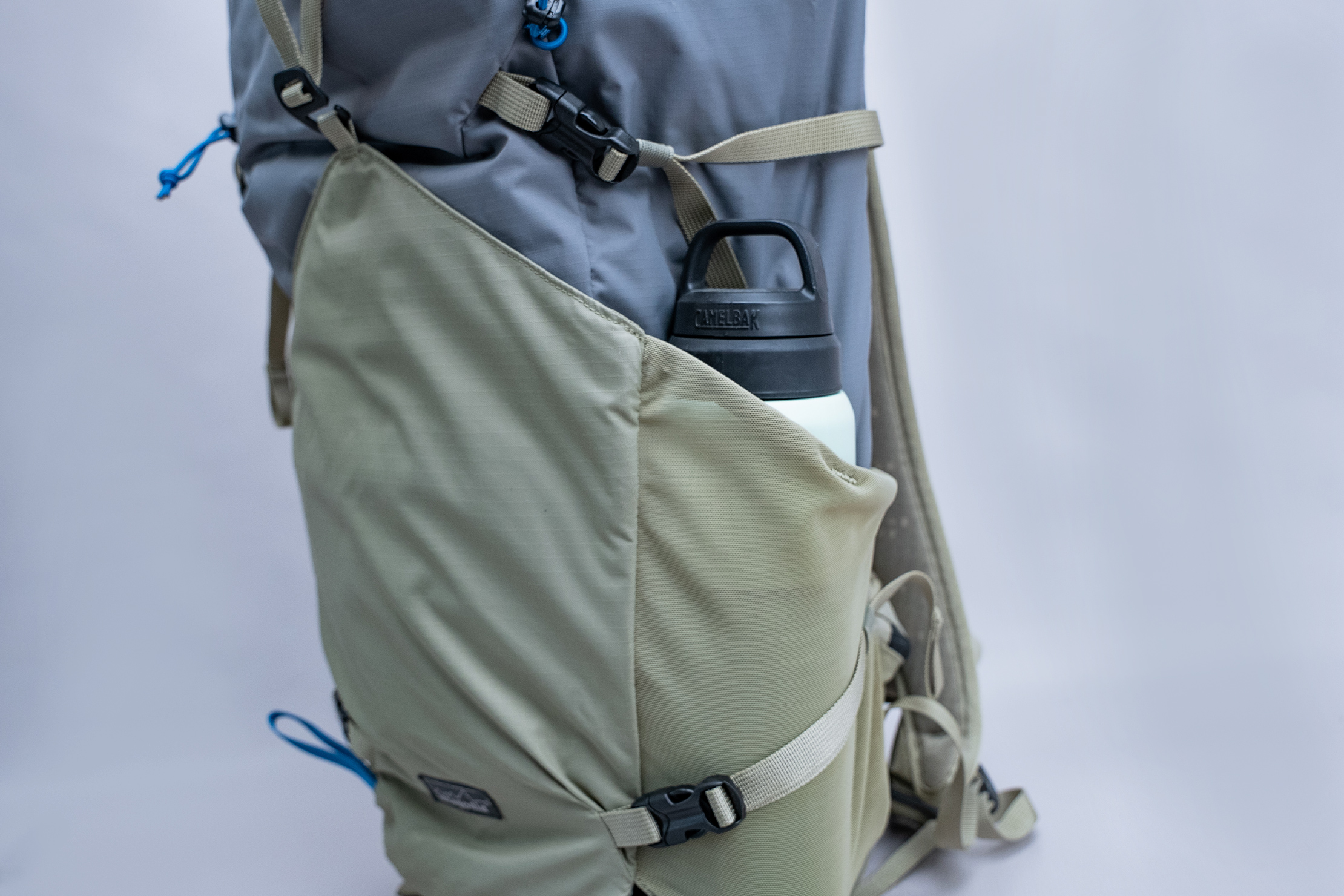
At the bottom is a rainfly stashed away neatly in a pocket that fastens with a hook-and-loop closure. This is handy if you’re determined to trek in the rain or if your gear is at risk of getting splashed, say, while kayaking. The one thing we don’t really dig about this rainfly is that it’s permanently tethered to the bag. We would’ve loved the option to remove it just to save a few ounces of weight and space or just in case we wanted to use it to cover something else.
There’s only one carry handle situated between the shoulder straps. Granted, it’s a bit wider than the ones you’d find on regular daypacks, but it’s also nowhere near substantial for carrying a bag of this size long-term. It’s fine for those situations where you just need to pull the bag out of a tight spot, or for hanging it on restroom stall hooks, but not much else.
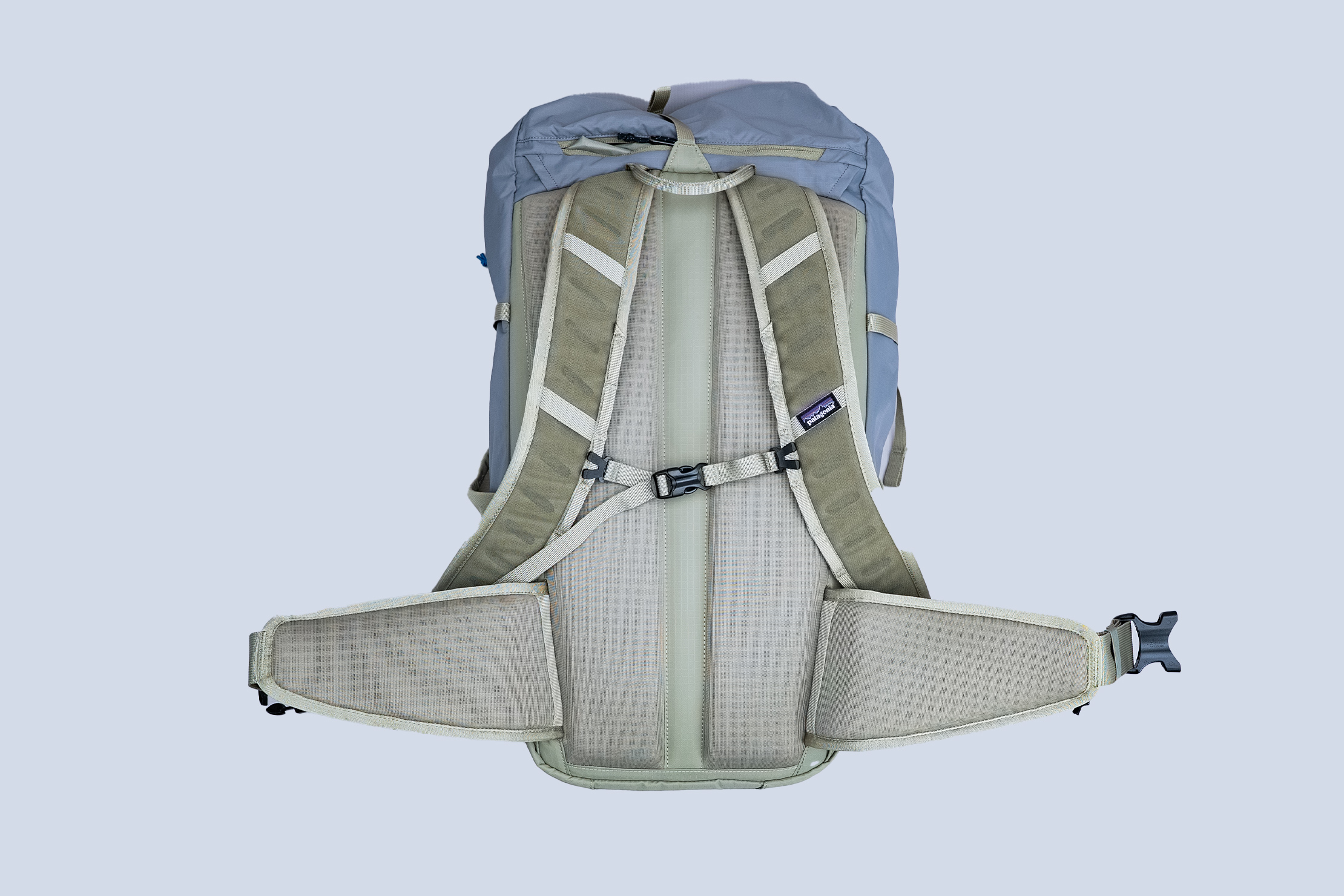
A highlight of the Terravia is its very comfortable harness system. Yes, this backpack may look like an off-roader, but its harness system delivers comfort like a Cadillac—and why wouldn’t it? Apart from wide shoulder straps, there’s also an equally wide hip belt and a thickly padded back panel. Plus, a metal frame holds up that back panel to make sure it doesn’t cave in no matter how you pack the bag. So, despite the bag’s lumpy looks, it stays very composed on your back.
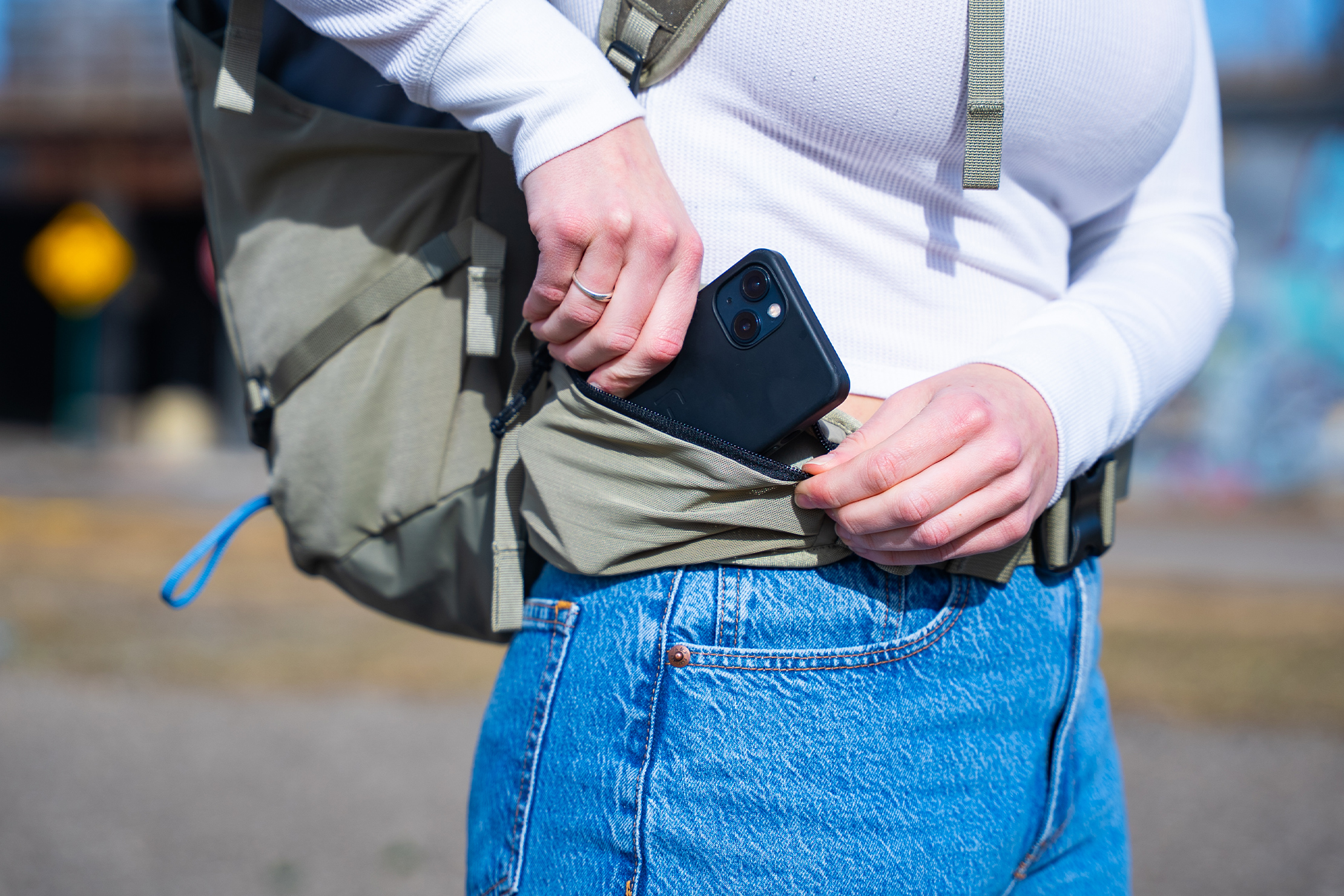
The Terravia also clearly focuses on breathability, as the back panel, shoulder straps, and hip belt are covered in mesh. Of particular note are the shoulder straps’ cutouts, which allow a noticeable amount of air through when it’s breezy outside.
Fit Notes
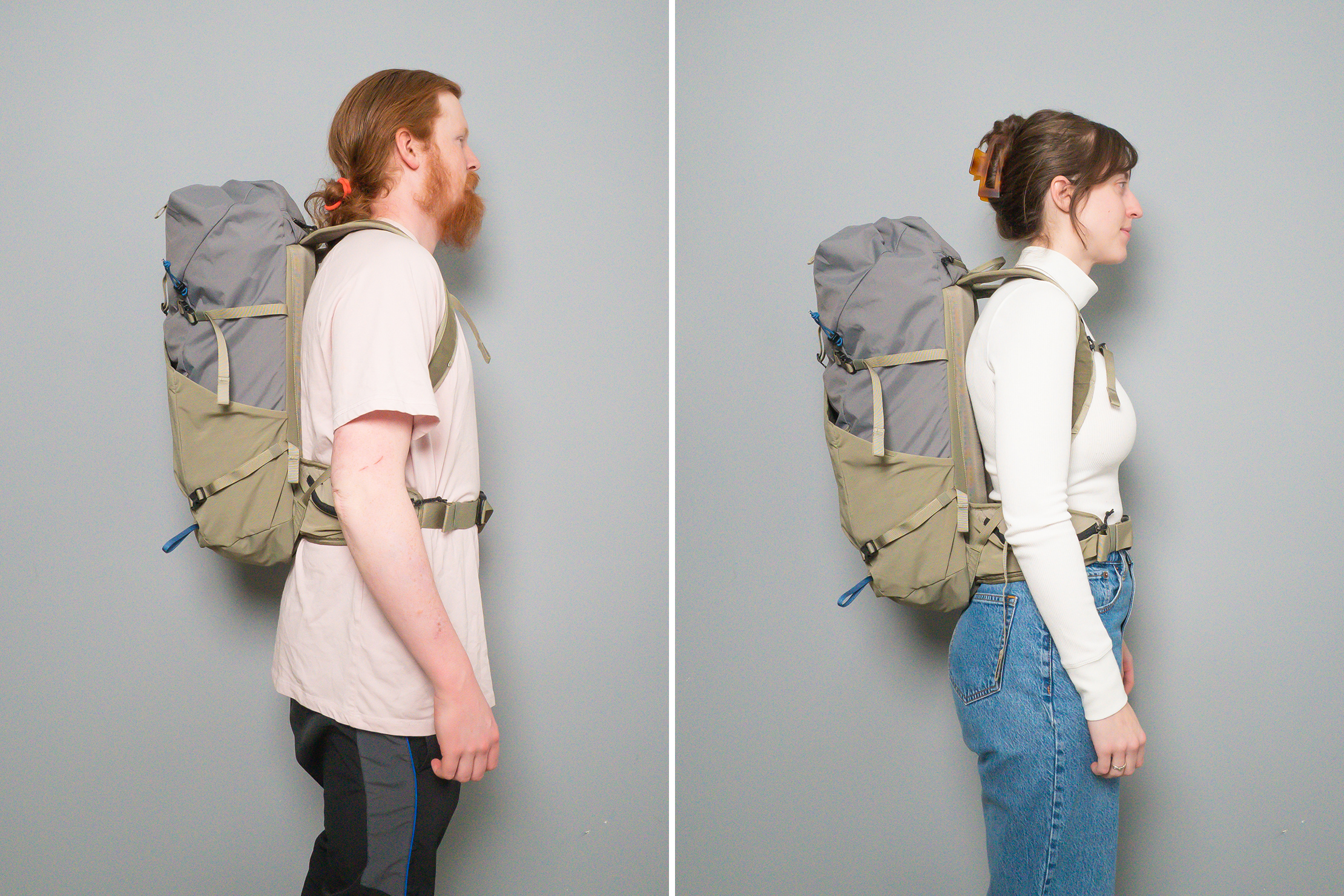
The Terravia comes in small, medium, and large sizes (not to be confused with the different volumes available). We’re testing the medium one as we think it’s a good bet for a wide variety of torsos, but it’s definitely worth consulting their size chart to get the ideal fit for you. As for the fit itself, the hip belt is doing a lot of work, taking some of the bag’s weight off the shoulder straps. They’re not too bulky either since they don’t brush against the arms while walking.
Load lifters are common with travel backpacks of this size, but they’re simply not necessary with the Terravia. The metal frame does a super job propping the bag up, minimizing any sagginess from how it’s packed.
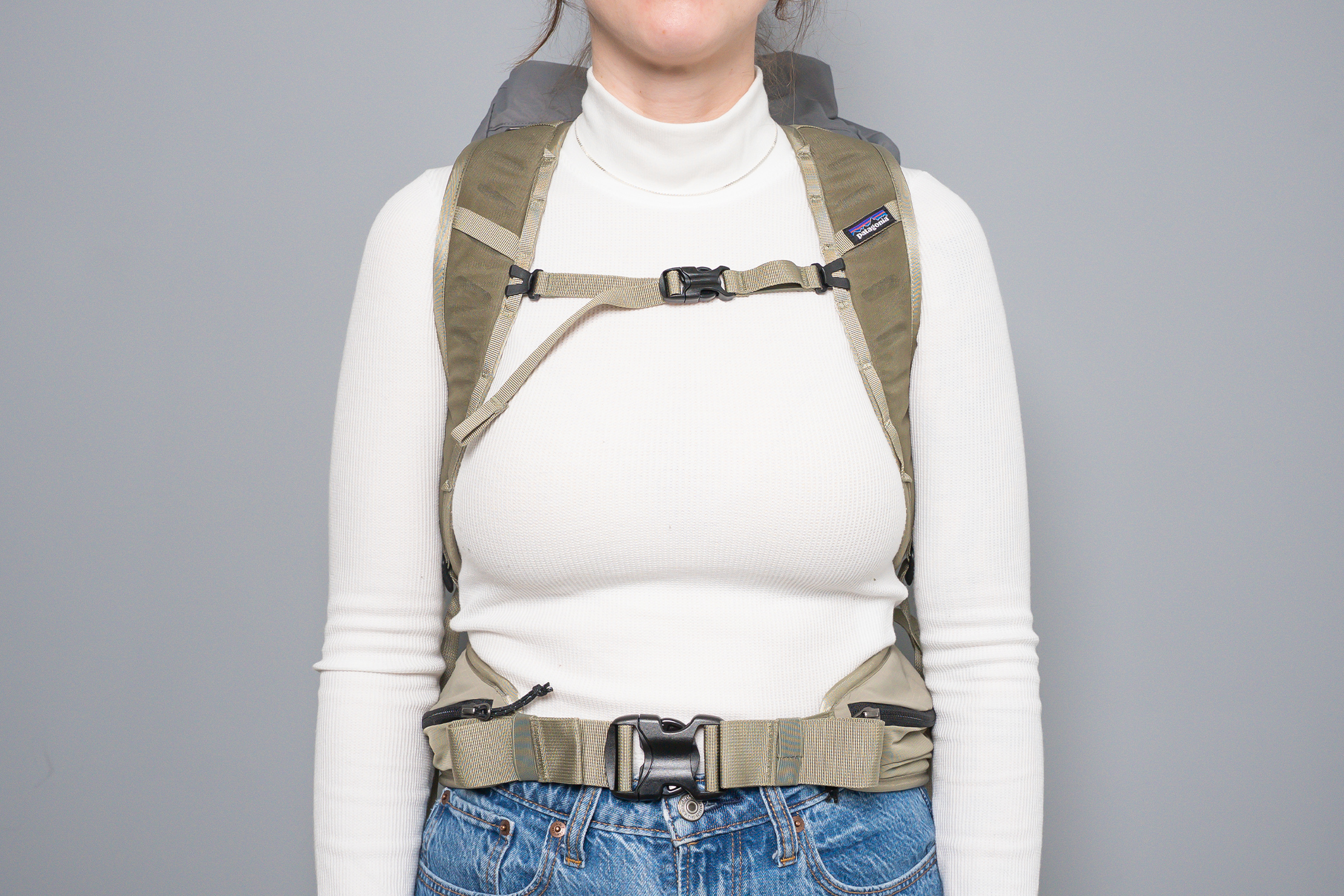
Two gripes: first, the sternum strap is mounted on loops, which isn’t the easiest to adjust since you’ll have to re-mount them each time. Still, it gets the job done once you get the adjustment right, so we won’t harp on it too much. Second, the non-removable nature of the hip belt means you really can’t just put the bag on and go, unless you fancy having the belt flopping around at your sides.
Inside The Backpack
At the sides of the Terravia are its water bottle pockets. They’re made of a simple mix of recycled nylon and spandex and certainly have the stretch to show for it. However, this stretchiness alone doesn’t deliver the grip needed to hold empty bottles in place. Fortunately, the bottom compression straps go over the pockets, so they can help further secure bottles, while the top compression straps can act as anchor points to which you can fasten your bottle’s handle. Incidental pressure from the main compartment can also help, but relying on how packed your bag is to make sure your bottles are secured is iffy at best.
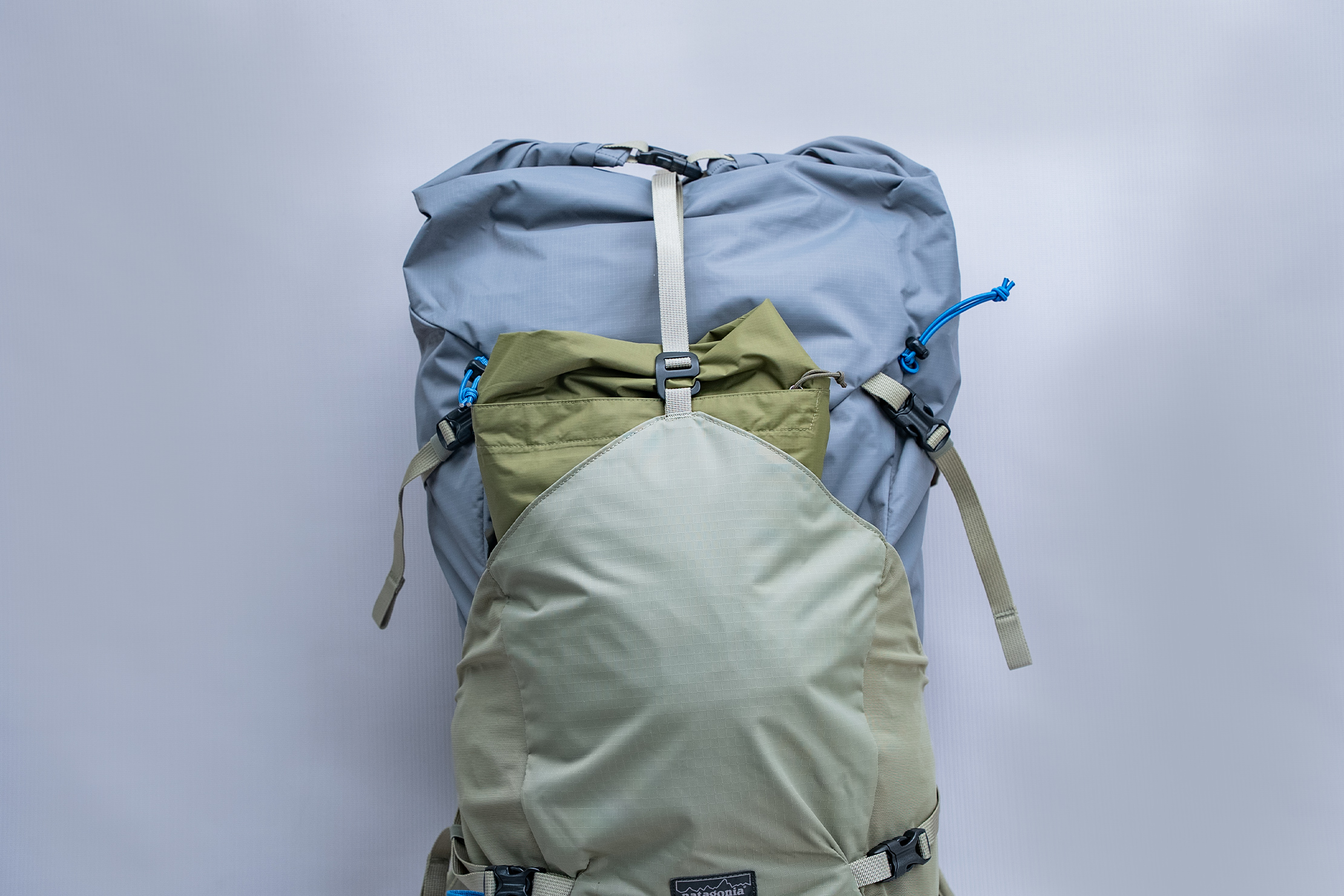
A huge stash pocket at the front of the Terravia is accessible once you’ve unclipped the main G-hook. Patagonia is super aware that anyone going on a hike will want a place to quickly stash large, bulky gear, such as an extra layer, gloves, or a buff, and this is the place for those. They even put drainage holes at the bottom so that excess condensation or moisture has somewhere to escape once it’s collected at the bottom.
There’s also a top pocket for your everyday carry accessories. It has a built-in key leash, so there’s no need to second-guess where you should put yours at the start of your trip. The pocket itself is pretty roomy, but access is partially blocked by the strap holding the rolltop in place. You can still maneuver the pocket’s zipper around the strap, but it’s a very noticeable hitch once you’ve used the bag for a few days. Between this and the strap also acting as the front stash pocket’s closure, it’s just one of those subtle aspects of the Terravia that reminds us that it’s not really an everyday carry type of bag.
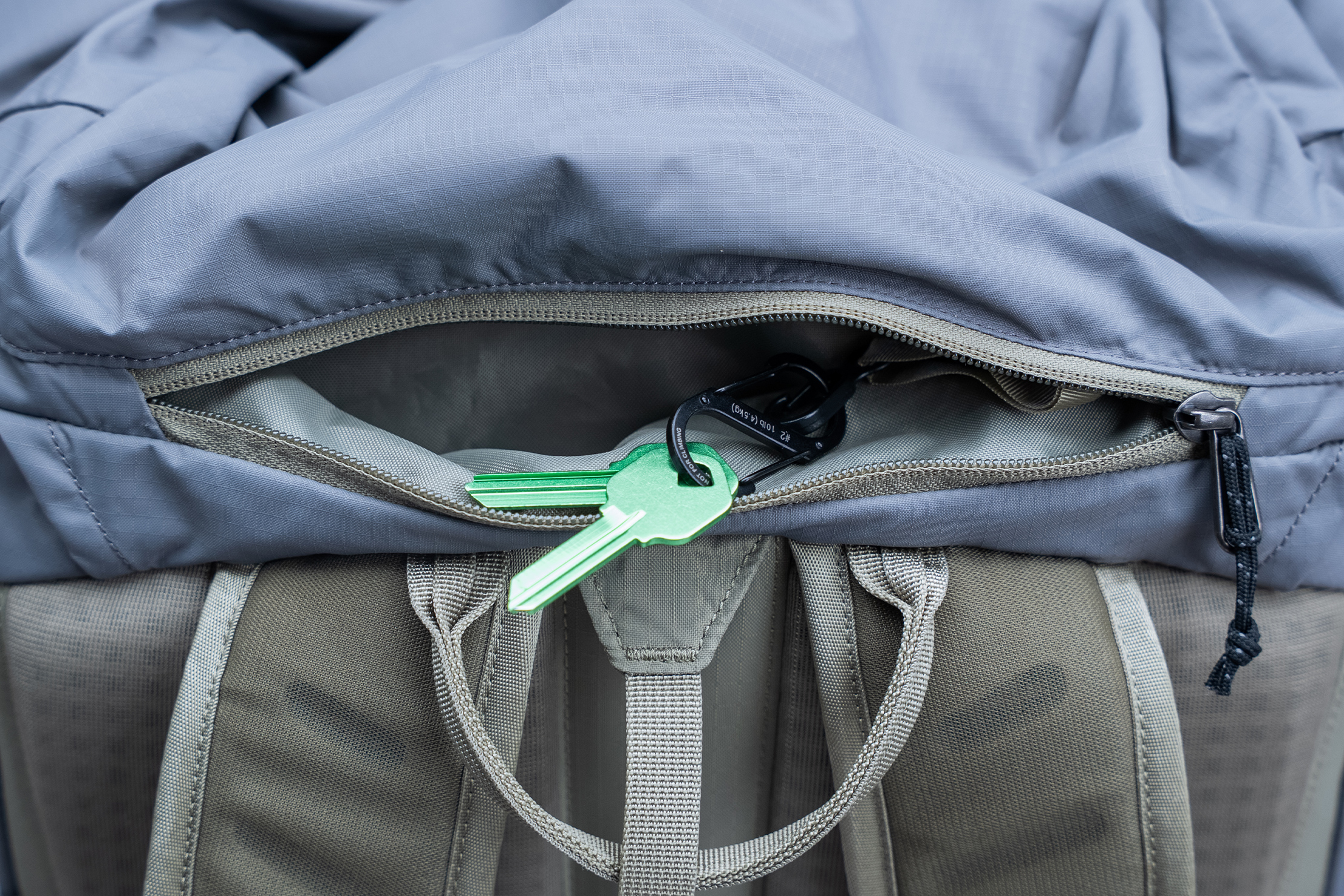
The hip belt has built-in pockets, one on each half, made with the same stretchy material as the water bottle pockets. This gives them enough room to expand and accommodate even large items such as a Max-sized iPhone and a handful of snacks. That said, hip belts should naturally curve against your body, but stiff items affect how well they contour. Conversely, something like a granola bar can turn into just plain crumbly granola if you place one here—don’t say we didn’t warn you.
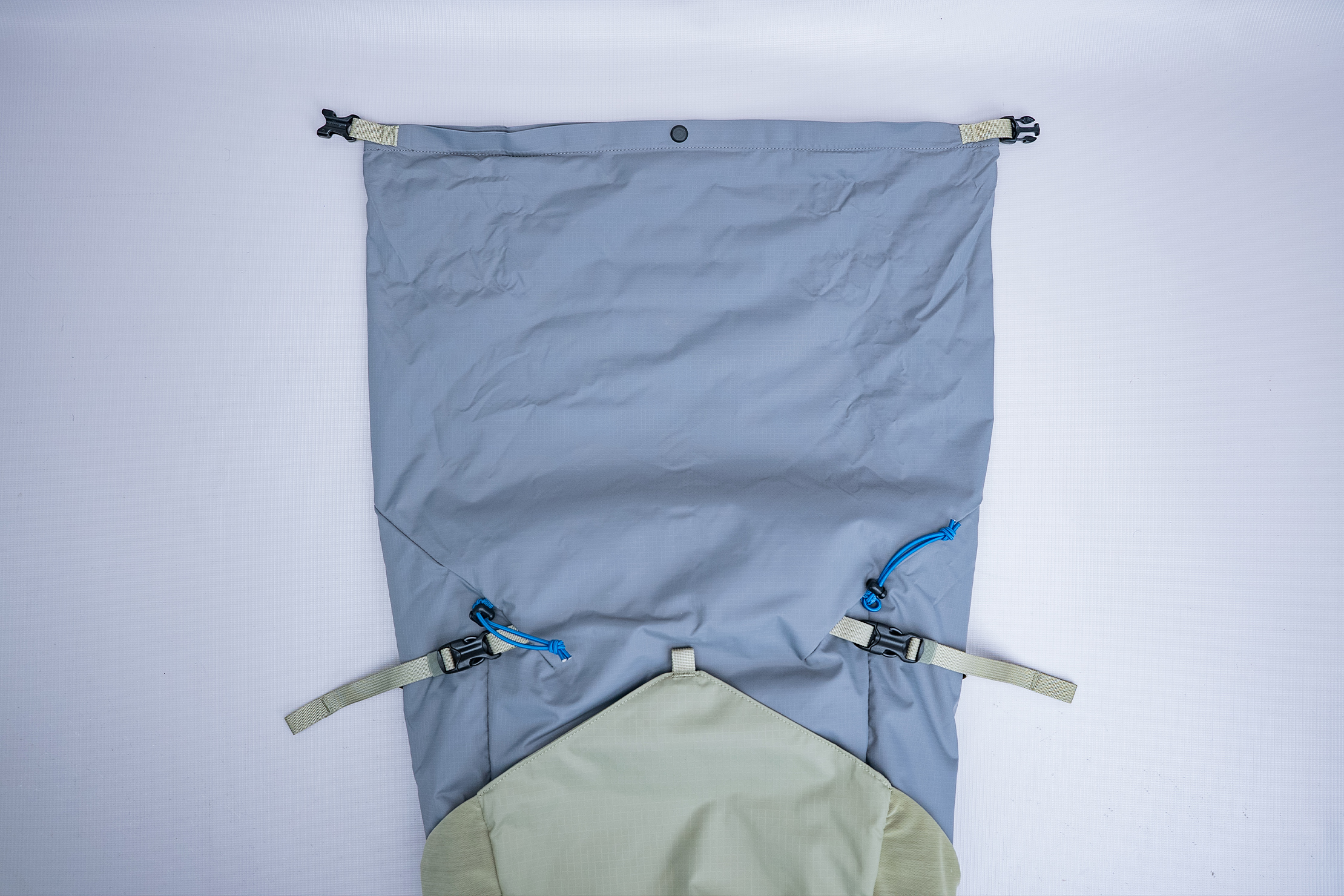
Access to the main compartment is through a rolltop, which has pros and cons. For one thing, having to roll and unroll the opening each time you need to take something out is tedious compared to a zippered opening, not to mention you have to undo the G-hook to do so. To be fair, it only takes about three rolls before you can securely fasten the rolltop’s buckles. However, it’s still nowhere near as fast as a zipper. As for the advantages, a rolltop offers more flexibility in terms of space. Whether you need to pack all the way to the brim or way below it, you can roll and cinch accordingly. Rolltops can also be more weather resistant since there’s no zipper track for rain to seep into, so long as you roll and buckle the opening properly.
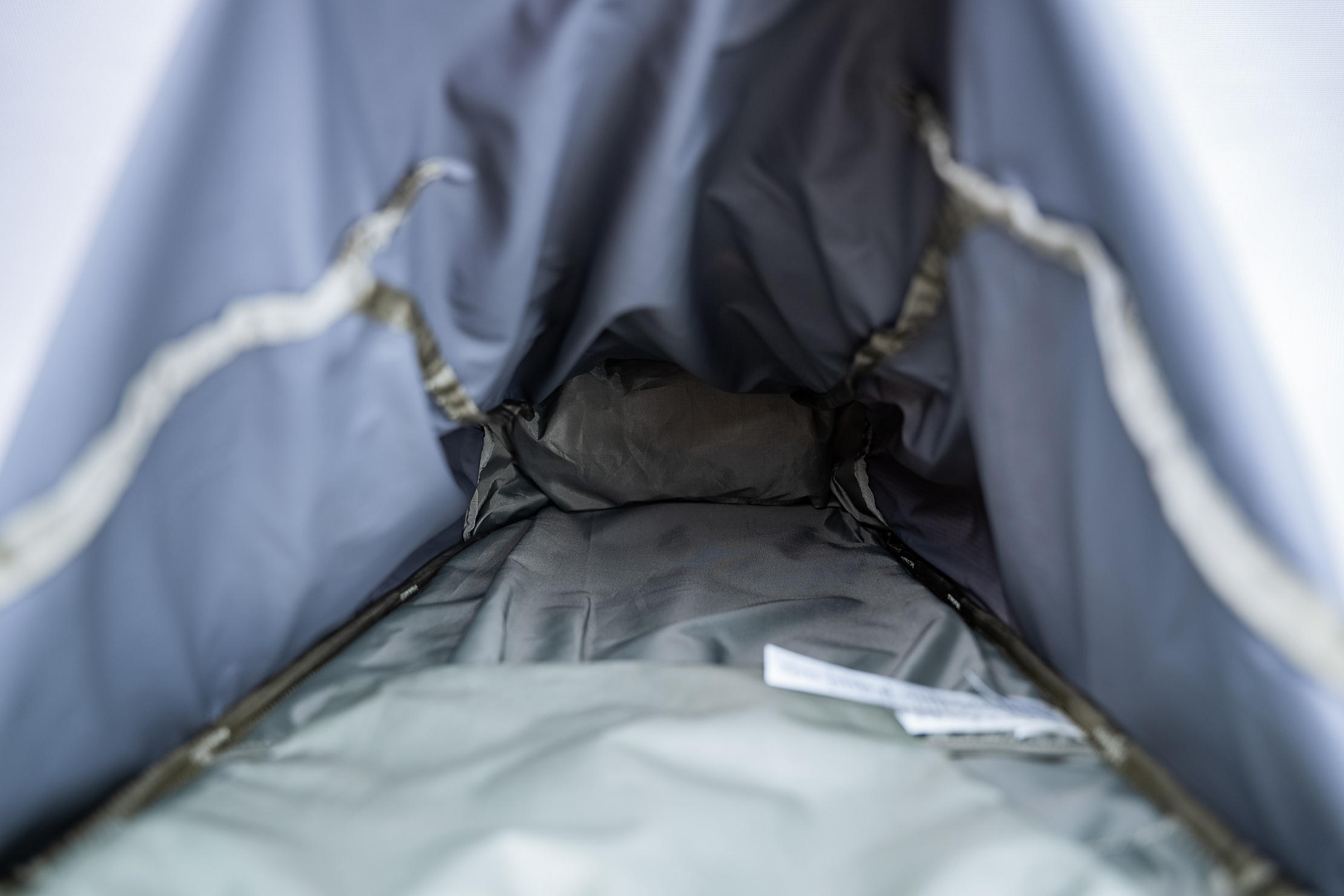
At 36 liters, this version of the Terravia is very large, especially if you plan to use it as a daily backpack. In our testing, the key thing to remember was to make sure to pack everything you need the first time because it’s tedious to unroll and repack if you forget something. And it’s fairly easy to do so since the interior is a bit of a dark pit despite the bright liner doing its best to contrast against the gear inside.
There’s plenty of room to stack packing cubes and pouches all the way to the brim. However, items like a laptop are harder to place once you’ve packed everything else inside. And since you’re stacking items, it’s also worth putting your most frequently used gear at the top where they’re easier to reach once you’ve gone through the whole unrolling ritual rolltop demands.
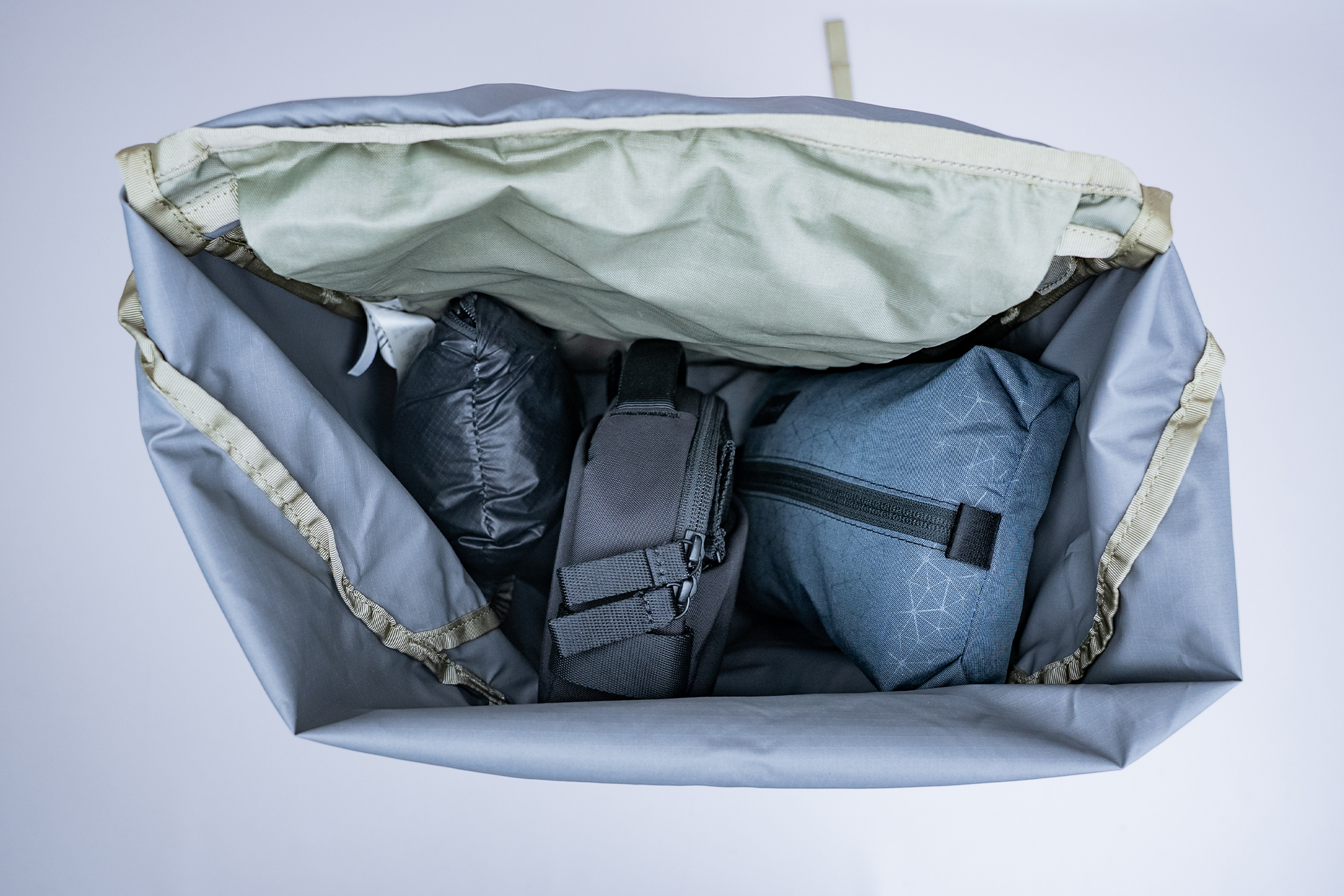
Inside, an internal sleeve can fit either a 16-inch laptop or a hydration bladder. There’s not much of a false bottom, nor is the sleeve padded, so covering your device in a separate laptop sleeve would be our recommendation. If you’re using it to store a water bladder, there is a pass-through between the shoulder straps, so you can route a drinking tube to the shoulder straps’ loops. The top pocket kind of gets in the way, but it’s fairly easy to maneuver around it when you’re setting things up or packing.
Usage Timeline
Condition: Excellent
- Rolltop closure makes the pack feel very roomy
- Harness system seems beefy but not overkill
- Comes in a bunch of other sizes
Condition: Excellent
- Water practically rolls off this thing
- No blemishes to be found—it’s holding up well!
- Expandable capacity is great for different length trips









Get your questions about the Patagonia Terravia Pack 36L answered from our team and the Pro Community right here on the page. Plus, join discussions with other members about gear, guides, and more.
Join Pack Hacker Pro or, Sign In